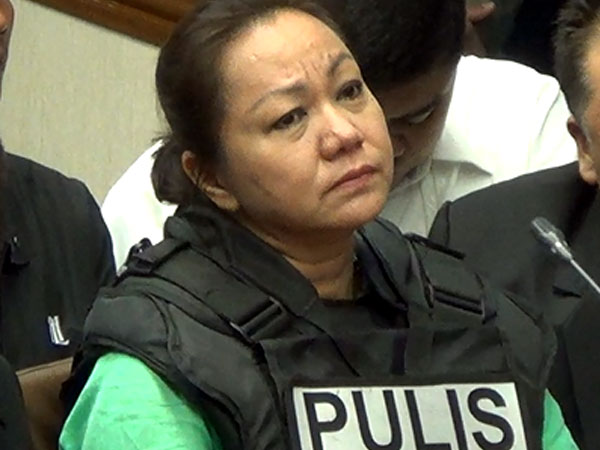Napoles acquittal seen to affect trust in PH justice system
A Catholic prelate warned that the acquittal of suspected pork barrel scam mastermind Janet Lim-Napoles on serious illegal detention charges might worsen the public’s mistrust in the country’s judicial system.
Balanga Bishop Ruperto Santos added that the Court of Appeal’s decision to nullify Napoles’ conviction “fuels suspicion that pork barrel money talks.”
“It also just adds to the mistrust of our people to our court—only the poor, unknown and [those who] have no connections are convicted,” the bishop said.
He added: “We are waiting to see the moneyed and those in higher-ups to be convicted by courts.”
On Monday, the appellate court reversed the decision of a Makati City Regional Trial Court (RTC) which initially found Napoles guilty of serious illegal detention.
Article continues after this advertisementThe charge was filed by Napoles’ cousin, Benhur Luy, who accused her of locking him up to prevent him from divulging what he knew about the P10-billion pork barrel scam.
Article continues after this advertisementThe Makati RTC initially sentenced Napoles to a 40-year prison term for illegally detaining Luy, one of the principal witnesses in the pork barrel scam.
Napoles was accused of masterminding the scam which involved diverting the pork barrel scam to ghost projects of her nongovernment organizations.
For his part, Fr. Jerome Secillano expressed concern that the acquittal might end up as “the mother of all injustices.”
“Let’s just hope that the acquittal may not have an impact in her other cases. If it does, then it’s going to be the mother of all injustices,” he said.
Secillano is the executive secretary of the Catholic Bishops’ Conference of the Philippines’ permanent committee on public affairs.
“With all the bogus foundations she put up, I guess those are overwhelming indications not only of an intent to steal from government coffers but of thievery itself with the
connivance of some unscrupulous politicians,” he added.
But a legal expert on Tuesday said the public should be more concerned if due process was observed in Napoles’ case.
“Wanting to convict and having sufficient evidence to convict are two different concerns, and the difference is called due process,” Fr. Ranhilio Aquino, dean of the San Beda Graduate School of Law said in a statement posted on his Facebook account.
Aquino noted while many people were convinced that Napoles illegally detained Luy, most were not entirely acquainted with the pieces of evidence presented by the prosecution and defense.
“But before blabbering about ‘miscarriage of justice’ and similar tired and abused tirades, where is the evidence sufficient to establish that she committed the crime? The Court of Appeals was not convinced there was. You may be convinced there was, but one may not have reviewed the evidence the same way the justices did,” the law dean said.
